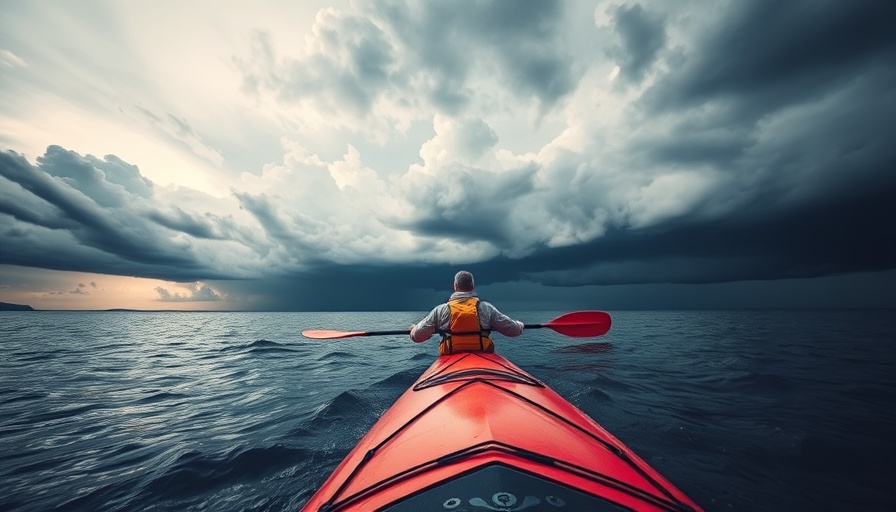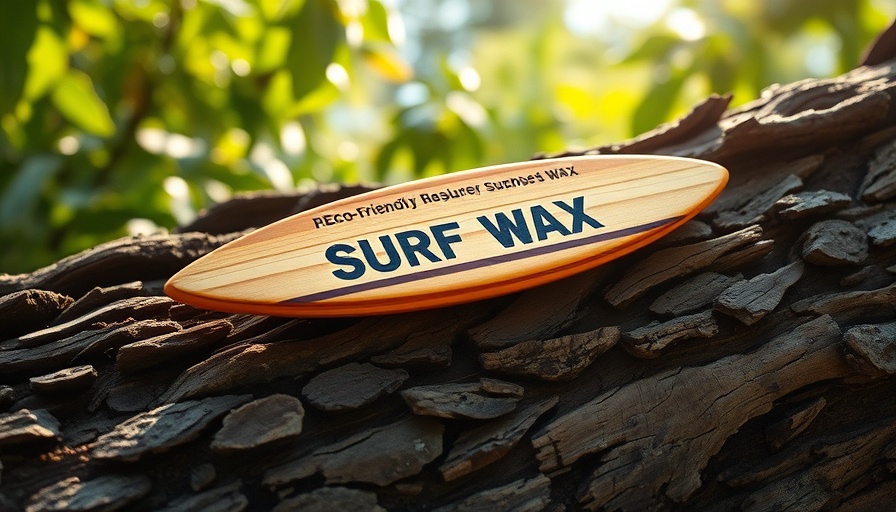
Navigating Nature's Playlist: Predicting Weather for Paddlers
For outdoor enthusiasts, being attuned to the elements can make or break your adventure. As paddlers, understanding the subtle signs around us can lead to not only safer excursions but also more enjoyable ones. Rather than relying solely on technology, here are some timeless ways to harness the wisdom of folksy sayings that have stood the test of time.
Wind Wisdom: The Direction of Change
“Wind from the east, weather a beast; wind from the west, weather is best.” Changes in wind direction serve as natural weather indicators. A counter-clockwise shift, often referred to as 'backing,' suggests a dip in pressure, bringing clouds and potentially severe weather, while a clockwise shift known as 'veering' hints at approaching high pressure and clearer skies.
Understanding Cloud Patterns
When it comes to predicting rain, cloud formations hold the clues. “Mackerel sky and mares’ tails make tall ships carry low sails.” Look out for those mottled altocumulus clouds and cirrus streamers—indicators of moisture and stormy weather likely on the way. These essential weather signs can prepare you for the conditions ahead.
Audio Cues: Let Your Ears Lead You
“When sounds travel far and wide, a stormy day will betide.” In humid conditions, sound travels better, enabling you to hear distant rumblings of thunder or the rustle of the wind. Paying attention to these auditory cues can alert you to changing weather systems.
The Halo Effect: Moon and Sun Signals
Have you spotted a halo around the moon? “If the moon has a halo around, we’ll soon tread on deluged ground.” This optical phenomenon indicates that moisture-laden cirrus clouds are gathering, hinting at rain just around the corner—typically 18 to 36 hours away.
Sunset and Sunrise Wisdoms
Another cherished saying is, “Red sky at night, sailor’s delight. Red sky at morning, sailors take warning.” Experiencing a red sky in the evening? That’s a sign of good weather ahead, likely due to clear western skies. Conversely, a morning red sky often foreshadows unsettled weather with storms approaching from the west.
Nature’s Patterns: Smoke and Trees
The movement of smoke can also be a straightforward gauge of weather. “When smoke descends, good weather ends.” Low-pressure systems can cause smoke to drift downwards, indicating moisture-laden air is near. Additionally, trees will often flip their leaves, revealing paler undersides as humidity rises—“When leaves show their undersides, be very sure rain betides.”
The Bird's Eye View: Nature’s Indicators
Pay attention to our feathered friends, too. “If birds fly low, expect rain and a blow.” Birds often fly lower when a storm is brewing because the insects they hunt tend to stay close to the ground during low-pressure conditions. Observing their flight might just offer you insight into impending weather.
Your Body’s Response: Physical Signals
Even your own body can serve as a weather barometer! “If your muscles all ache and itch, the weather fair will make a switch.” Many people feel physical discomfort when atmospheric pressure shifts, hinting at transitioning weather patterns.
Putting It All Together: Crafting Your Own Forecast
As paddlers, understanding and observing these natural signs will enable you to confidently navigate the waters, making informed decisions about your outings. Combine your observations with awareness of local weather patterns, and you'll develop a keen sensitivity to the world around you.
Ultimately, while modern technology can enhance our understanding of weather, these time-honored sayings and observations can serve as a valuable guide. By honing your skills in this way, you not only deepen your connection to nature but also cultivate the confidence to embrace every paddling adventure with assurance!
Join the Conversation
As you prepare for your next paddle, take a moment to engage with your community. Share your own weather-predicting tips and experiences. What’s a cherished saying or observation that has helped you? Let’s continue to build a wealth of knowledge among us water enthusiasts!
 Add Row
Add Row  Add
Add 




Write A Comment